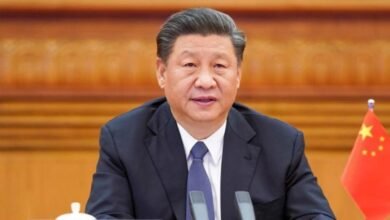Is Maldives the next Nepal? Here is why it can be possible

Is Maldives the next Nepal? Here is why it can be possible
The picture-postcard Maldives is experiencing its most serious democratic crisis in years. What began as public outrage over suspicious deaths of young women has exploded into widespread protests against President Mohamed Muizzu’s increasingly authoritarian rule, with journalists now at the centre of a violent government crackdown.
The catalyst for this upheaval was the Maldives Media and Broadcasting Regulation Bill 2025, which critics describe as a direct assault on press freedom. The proposed legislation would abolish existing media councils and create a new commission answerable directly to the president and his parliamentary allies. This body would have sweeping powers to impose heavy fines, suspend media registrations, block websites, and halt broadcasts without requiring court orders.
Street protests have erupted across Mal and the outer atolls, with camera crews dodging police batons and tear gas. The Maldives Journalists Association, previously a moderate lobbying group, now finds itself leading street demonstrations alongside opposition parties and youth activists. Placards demanding “No Censorship!” have become a common sight as police respond with pepper spray and arrests.
International press freedom organisations, including the Committee to Protect Journalists and Reporters Without Borders, have condemned the bill as a wholesale dismantling of the democratic media framework established after the country’s 2008 constitutional reforms. They warn that decades of fragile media freedoms could be erased in a single legislative stroke.
The current crisis has deeper roots in public grief and frustration. In April 2025, a young woman fell from a ninth-floor building in Mal under suspicious circumstances. When Zakiyya Moosa’s death was ruled “self-inflicted” without an autopsy, families demanded independent investigations. Instead, they encountered government stonewalling and police violence. These tragedies became rallying cries for a generation tired of official impunity.
President Muizzu, who rode a nationalist “India Out” wave to power in late 2023, now commands a parliamentary supermajority. His government has been steadily consolidating power through constitutional amendments, judicial impeachments, and laws penalising legislators who switch parties. The media bill represents perhaps the most significant threat yet to democratic accountability.
This pattern of creeping authoritarianism has serious implications for India, which views the Maldives as strategically vital. The archipelago sits astride crucial Indian Ocean shipping lanes and hosts Indian-funded infrastructure projects. Muizzu’s earlier anti-India rhetoric already strained bilateral relations, and the current democratic backsliding threatens regional stability.
New Delhi has offered millions of dollars worth credit line and high-level diplomatic engagement to steady relations, but faces a strategic nightmare: a once-reliable partner potentially sliding into chaos or China’s orbit. With Nepal experiencing youth unrest, Bangladesh facing student protests, and Sri Lanka still recovering from economic collapse, India finds itself surrounded by regional instability.
The Maldives has a history of protest movements forcing political change. The 2003 prison-death demonstrations shook the previous autocracy, while 2011-2013 rallies led to a presidential resignation. Today’s journalist-led protests echo this tradition of resistance, though they face a government armed not just with riot police but with laws designed to criminalise dissent.
Whether this latest democratic crisis will follow historical patterns of eventual reform or mark a definitive slide into authoritarianism remains unclear. What is certain is that the fate of press freedom in this Indian Ocean nation will determine whether citizens retain any voice in their governance at all.
– Ends
Source link



